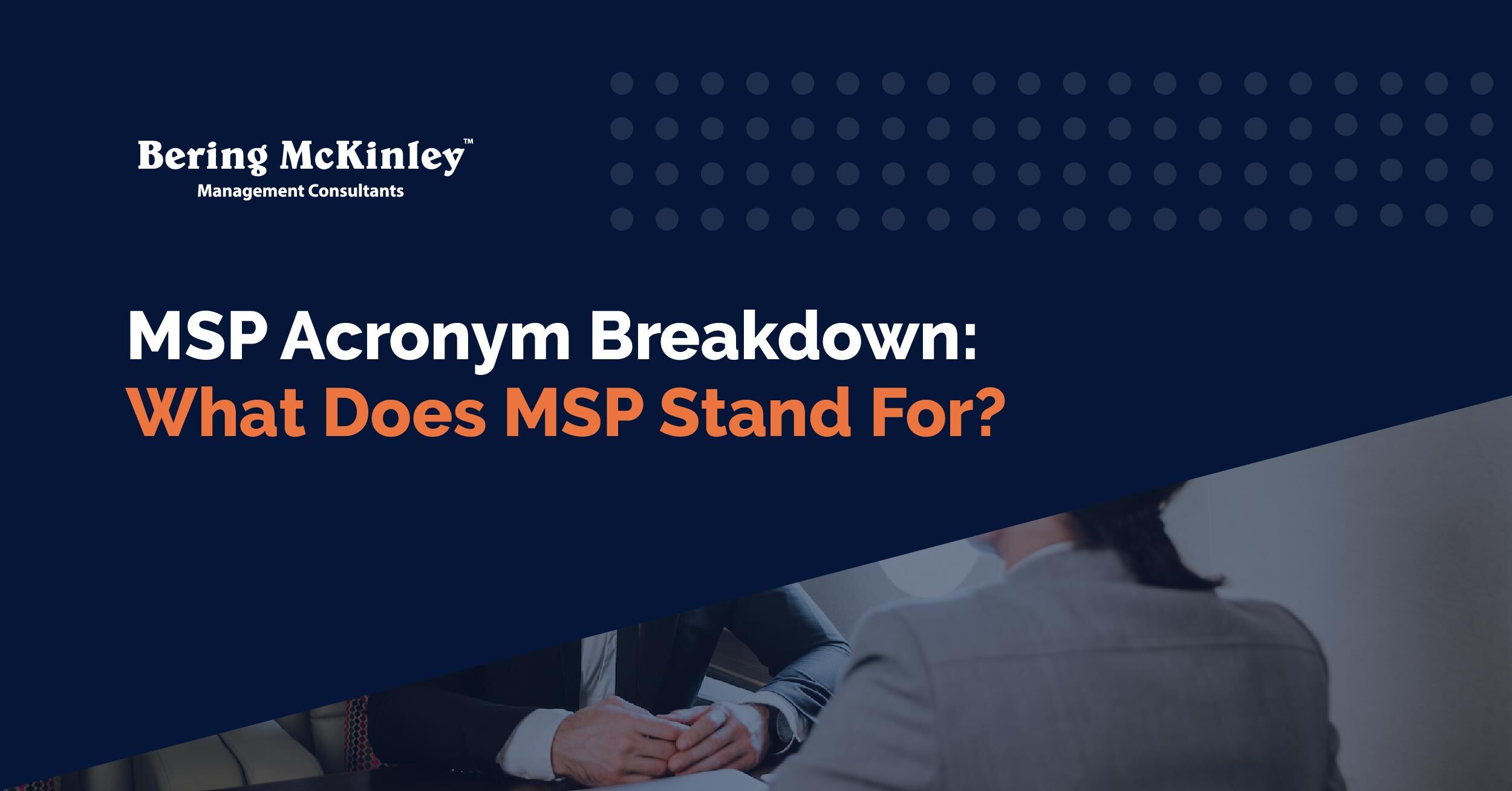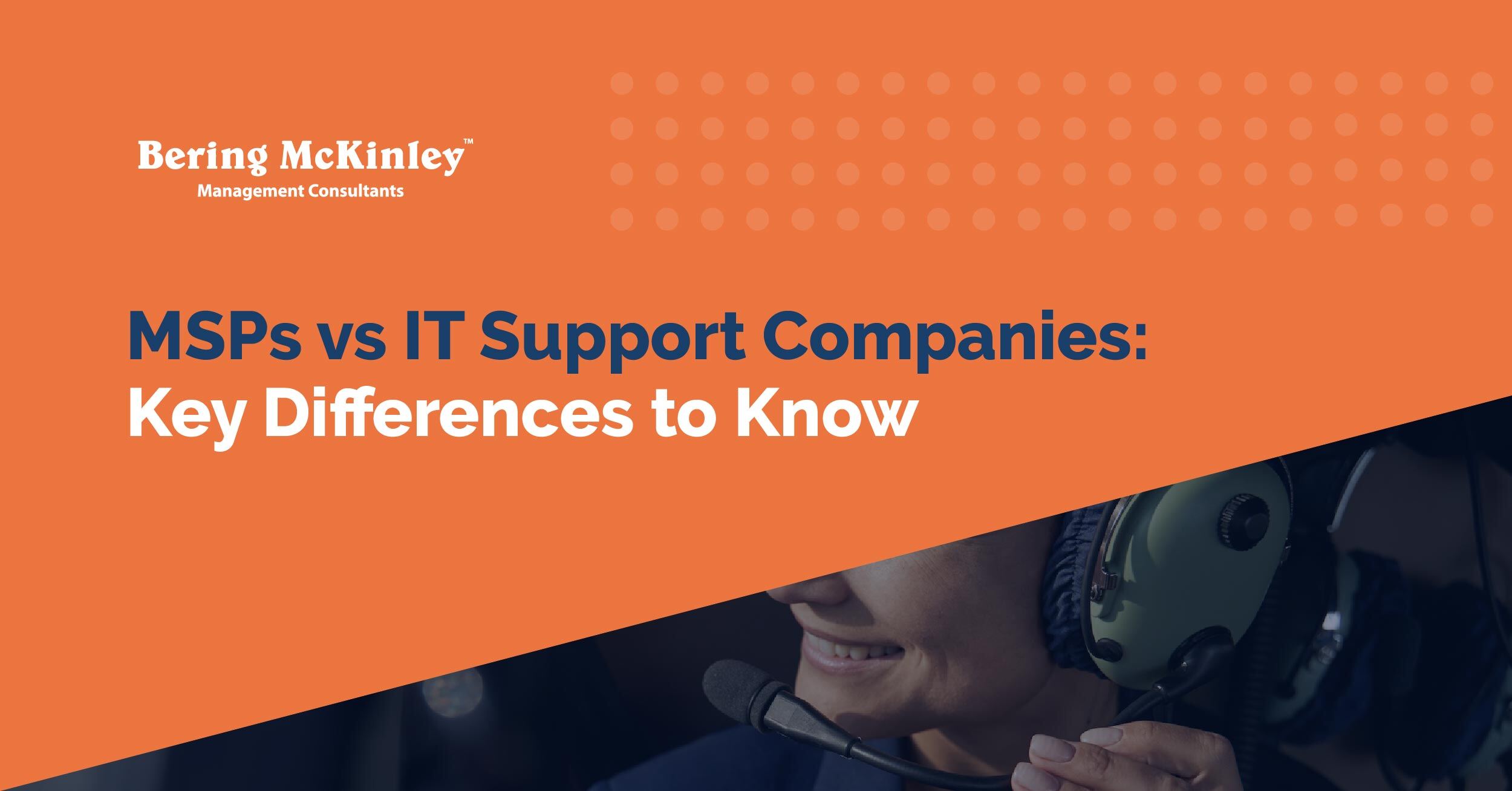PSA Software for MSPs: Why ConnectWise Leads the Pack in 2025
Businesses cannot afford downtime or inefficiencies in their IT operations.
4 min read
 Josh Peterson
:
Updated on February 2, 2026
Josh Peterson
:
Updated on February 2, 2026

Managed Service Providers (MSPs) have become a critical component in today's business world, enabling companies to stay efficient, scalable, and competitive. But did you know that the acronym MSP means different things in various industries? While traditionally associated with IT services, MSP has unique definitions and applications across sectors like healthcare, finance, and retail.
If you’re an MSP owner looking to understand the broader impact and applications of your service—or if you're simply curious about how different industries leverage MSPs—this post is for you. We’ll break down what MSP stands for in different contexts, the services these providers offer, and their role in driving innovation and operational efficiency across industries.
When someone says "MSP" in the IT world, they’re likely referring to Managed Service Providers. Here, MSPs handle key IT services for businesses, including network management, cybersecurity, cloud computing, and data storage. Essentially, they act as an outsourced IT department, empowering organizations to focus on business growth while leaving the technical heavy lifting to experts.
For example, an IT MSP could help a startup migrate its entire infrastructure to a cloud-based environment, allowing it to quickly scale operations as the business grows.
MSP in healthcare translates to Medical Service Providers or sometimes Managed Staffing Programs, depending on the context. This acronym focuses on streamlining healthcare services or staffing operations, ensuring hospitals and clinics run efficiently without compromising patient care.
For example, a Managed Staffing Program in healthcare could partner with hospitals to fill critical staff shortages during high-demand periods, like flu season or a pandemic.
Within the financial sector, MSP often refers to Managed Service Providers focused on financial operations, compliance, and IT support specific to the industry’s unique demands. This ensures that organizations meet regulatory requirements while maintaining operational efficiency.
For instance, an MSP might support a credit union by managing its online banking systems, keeping them accessible and secure for customers while monitoring compliance with legal standards.
Retail businesses rely on MSPs to handle various operational and IT needs, making them better equipped to deliver seamless shopping experiences. Here, MSP can represent Managed Service Providers as well as vendor Management Service Programs.
For example, a retail MSP can help a chain of stores unify its physical and online inventory systems, ensuring customers can easily purchase items online and pick them up in-store.
Across all industries, MSPs share common goals: enhancing efficiency, improving security, and solving complex problems. However, each sector faces unique challenges that MSPs adapt to and help resolve:
Whether it's automating compliance workflows for a bank or managing IoT devices in retail, MSPs provide tailored solutions that cater to the specific complexities of each industry.
MSPs are not just service providers; they’re catalysts for business growth and drivers of operational efficiency.
With MSPs monitoring IT infrastructure or managing operational challenges, organizations can prevent issues before they arise. For example, an MSP can monitor a company’s systems for malware, fixing vulnerabilities before they cause disruptions.
Employing MSPs reduces the need to hire full-time in-house teams for specific tasks, lowering long-term costs while providing expert-level services.
Scaling businesses up or down becomes easier with MSPs as they offer flexible solutions, especially for startups stepping into larger markets.
The influence of MSPs extends far beyond reactive fixes. They play a vital role in advancing technologies within industries.
Many MSPs now integrate AI into their services for predictive analytics, proactive cybersecurity, and chatbots. Such automation transforms processes across industries.
Transitioning businesses to secure, scalable cloud ecosystems is a priority for MSPs, contributing to the global digital transformation.
By adopting MSP solutions, organizations deliver smoother, faster, and more secure experiences to customers and employees alike.
For MSP owners, staying ahead of technological trends and client expectations is now a strategic necessity.
Running an MSP comes with its own challenges—from scaling operations to staying on top of industry demands. Having the right strategy in place can make all the difference.
At Bering McKinley, we specialize in consulting services exclusively tailored for MSP owners. Whether you need help with operations, scaling, or improving service offerings, we're here to help you grow your business effectively.
.jpg)
Businesses cannot afford downtime or inefficiencies in their IT operations.

When it comes to Managed Service Providers (MSPs), businesses today have countless options. These IT experts keep businesses running smoothly by...

Many businesses find themselves asking the same question when it comes to IT services: What’s the difference between a Managed Service Provider (MSP)...